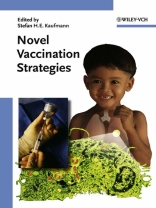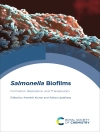The protection mode of most available vaccines is based on antibody responses. Since efficient immune responses to many pathogens rely on activating all arms of the immune system, traditional vaccine development does not provide efficient protection against many diseases. Novel vaccination strategies need to allow presentation of antigens that activate the full array of the immune response in the right composition and should prevent pathogen entry by mobilizing the mucosal immune response. New technological advances optimize the immunogenicity of ‘live’ and sub-unit vaccines.
This book offers an interdisciplinary overview on research and future strategies for rational vaccine
design based on recent developments in molecular biology and immunology. It covers new aspects of the immunological interplay between prokaryotic and eukaryotic systems as well as achievements in the development of novel vaccine candidates.
Chapters on edible vaccines, on vaccines against bioterror agents and on economical and safety aspects of novel vaccine development round off this title.
Table of Content
PART I
Preface
Introduction: Challenges for the vaccine developer, including correlates of protection
PART II
VACCINATION AND IMMUNE RESPONSE
Shaping adaptive immunity against pathogens: the contribution of innate immune responses
Adjuvant induced Th2 and Th1 dominated immune responses in vaccination
Memory
T-cell based vaccines
PART III
ADJUVANTS
Microbial adjuvants
Host derived adjuvants
Microparticles as vaccine adjuvants and delivery systems
Liposomes and ISCOMs
Virosomal technology and mucosal adjuvants
PART IV
CLASSICAL AND NOVEL VACCINATION STRATEGIES: A COMPARISON
Classical bacterial vaccines
Subunit vaccines and toxoids
Engineering virus vectors for subunit vaccines
Update on antiviral DNA vaccine research (2000-2003)
Live recombinant bacterial vaccines
Mucosal vaccination
Passive vaccination and antidotes: A novel strategy for generation of wide-spectrum protective antibodies
Plant-based oral vaccines
Virus-like particles: Combining innate and adaptive immunity for effective vaccination
PART V
VACCINES FOR SPECIFIC TARGETS
Helicobacter pylori
Tuberculosis: Novel vaccination strategies against tuberculosis
Rationale for malaria vaccine development
HIV
Vaccines against bioterror agents
Part VI
VACCINES IN THE REAL WORLD: SAFETY, COST-EFFICIENCY AND IMPACT OF VACCINATION
Imperfect vaccines and the evolution of pathogen virulence
Cost-effectiveness of vaccinations
Immunological safety of vaccines: facts, hypothesis and allegations
Index
About the author
Prof. Dr. Stefan H.E. Kaufmann, Scientific member of the Max Planck Society, Founding Director of the Max Planck Institute for Infection Biology, Berlin. More than 500 publications and reviews on immunology and infection. Member of numerous scientific societies and committees and winner of prestigious awards. One of the 100 most cited immunologists in the period of 1981 to 1999.












